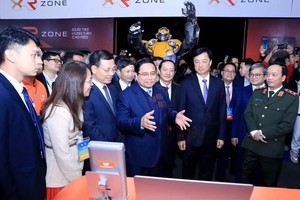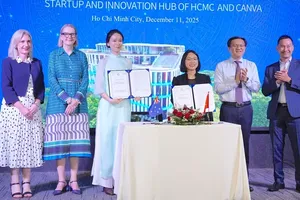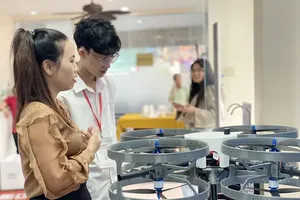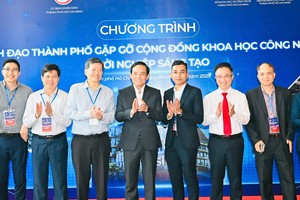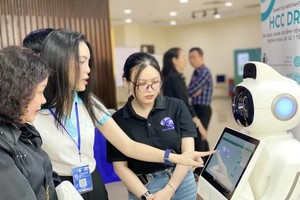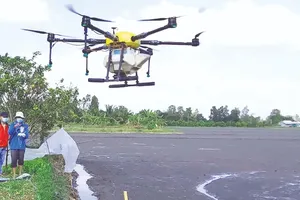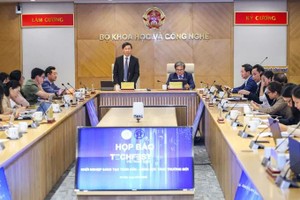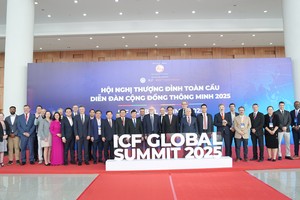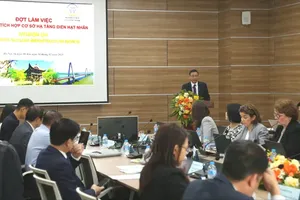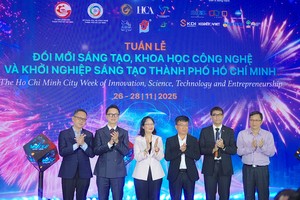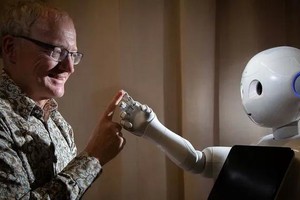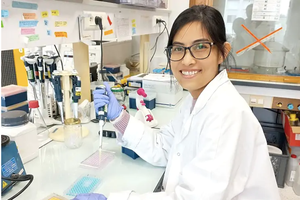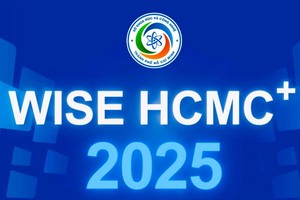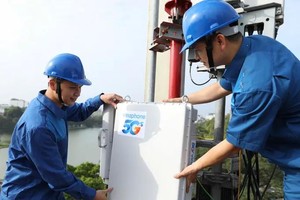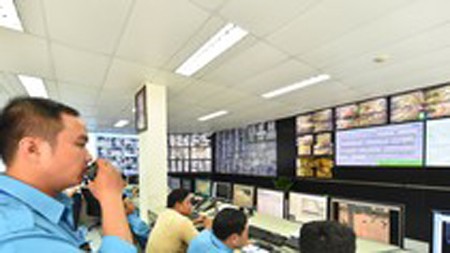
Digitalization means the creation of a digital version for physical objects, helping them to be accessed conveniently via the Internet and forming a digital environment. This is expected to make way for new working methods and lifestyles.
The digital transformation process takes advantage of several state-of-the-art technologies such as Internet of Things, cloud computing, and blockchain.
To be successful in this process, organizations and businesses need to re-identify their operation or trading models, prioritizing innovation and making use of data sources connected through AI solutions.
For example, during this Covid-19 pandemic, schools have to apply both traditional and online teaching methods, while enterprises must reform their manufacturing or trading ways. Similarly, the local authorities have to find better approaches to offer public services to citizens.
Obviously, this process, which gradually follows a stable pre-identified route, means a comprehensive change in all levels to increase the digital capacity and culture. Therefore, this is a long-term mission, divided into small and specific goals for ease of achievement.
The first determining factor in Industry 4.0 and digital transformation is awareness raising for each individual and organization. This can only be obtained through training and self-learning.
Hence, it is essential that in the upcoming time, HCMC hold training sessions to update basic knowledge on this matter to state officers and the municipal leaders. The active and innovative spirit of these leaders should be deliberately promoted.
Digital transformation in state units may begin with data exploitation, operation model shifting to ensure synchronization and connection among them in order to provide better public services for both citizens and businesses.
At the moment, HCMC is preparing a detailed plan for digitalization and effective data use in governmental works. Electronic documents submitted for public services should be monitored via file management systems, while administrative files should be accessed and used by document mining ones.
From those useful systems, a new method to collect and categorize reports of the city and sub-leveled units will be developed to serve the task of analyzing data and then producing precise predictions, statistics for timely management.
Simultaneously, HCMC needs to perfect its data processing platform for the integration procedure and common database creation as well as open data ecosystem establishment.
These are critical steps in the digital transformation strategy of the city.
Finally, digitalization encourages trading, manufacturing, and service model reforming based on the use of digital technology advances. Therefore, the municipal authorities should create favorable conditions to facilitate this process among organizations and enterprises.

